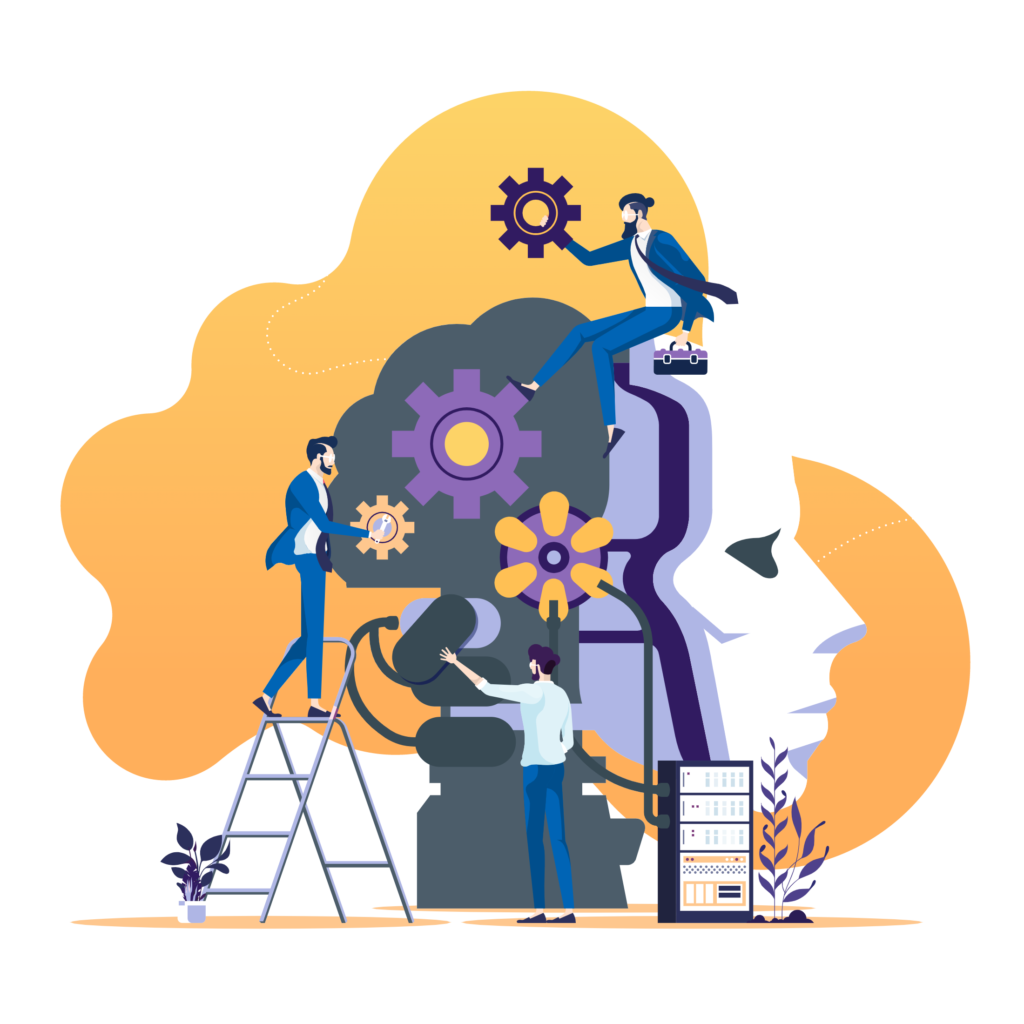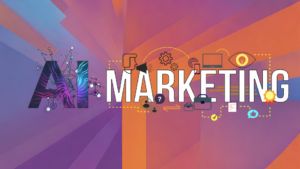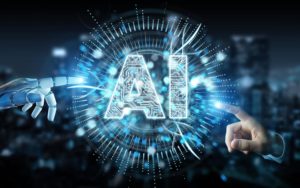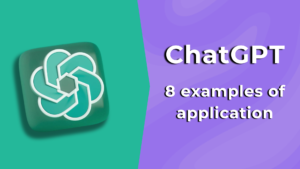Artificial Intelligence (AI) is now part of our daily life. Who hasn’t tried to use Siri, Alexa, or a voice activated car navigation system at least once?
Then, it comes down to a set of technologies that are already familiar to consumers, the 94% of which have heard about it at least once, and the 51% have used products and services with Artificial Intelligence functions (Osservatori.net 2021).
AI in companies
AI is progressively entering companies too, by posing the objective to solve tangible issues and automate those processes which were formerly carried out by human beings.
According to the MIP’s Polytechnical Institute of Milan observatory, the AI market in Italy is worth 300 million euros, with a 15% growth with respect to 2019. The projects on which companies are mostly focused are: Data Processing (33%), Natural Language Processing (18%), recommendation systems (18%) and process automation (11%). Chatbots and Virtual Assistants are the projects experiencing the largest growth (+28%).
Moreover, according to a research conducted by Multiplica on 156 companies in Spain, Italy, Mexico, Chile, Colombia, Peru, Argentina and Ecuador, the activity on which businesses focused the most during 2020 was exactly processes automation (46%), even thanks to chatbots, virtual assistants, Machine Learning algorithms and AI.
The great challenges that companies set for themselves are just as clear:
- increasing sales and conversions (65%)
- automating sales and marketing processes (55%)
- improving customer service (49%)
- reducing costs and increasing efficiency (33%)
Did you ever think that your company could use AI too, and reach the same goals in a quick and tangible way?
What is AI?
We illustrated the potential of AI, but we want to shed some light too. It is called Artificial Intelligence because it works similarly to the processes performed by the human brain.
It consists of a branch of computer science which studies the development of hardware and software systems able to autonomously perform tasks and make decisions, which, until that moment, were assigned to human beings.
The typical capabilities of human beings concern:
- Understanding and elaboration of the natural language
(Natural Language Processing – NLP) where natural language refers to the one spoken daily, and hence to the most common and natural form of human communication, both spoken and written.
The natural language differs from the formal language, which is used by computers.
- Comprehension and elaboration of images (Image processing)
- Learning and realization of automatic tasks (Machine Learning)
- Capability to interact with other people, machines and the environment (conventional systems such as chatbots and virtual assistants)
AI systems are not based on programming or coding, but instead on learning techniques: namely, some algorithms are defined, which elaborate a huge quantity of data from which the system itself must derive its own comprehension and reasoning capabilities.
How can AI help me?
AI can help you solve real problems that you deal with in your company everyday, by reducing costs at the same time and therefore enhancing profitability. Let’s see some examples.
Speed up response time through the automatic classification of tickets
The customer opens a ticket because he/she has a problem. Your operators have to read it, understand it, categorize it and sort it. All of this needs to happen by ensuring that processes are performed correctly and the request is answered within a reasonable time, other than by constantly informing the customer about the various steps, to grant him/her a flawless experience.
What happens if the process doesn’t work? Or if instead the operator makes a classification mistake and sends the ticket to the wrong person?
The customer will start getting upset and will probably complain on every channel of contact with your company, with the risk of losing him/her.
Do not forget that it doesn’t take much: according to Glance, 78% of customers give up a purchase if they lived a negative experience.
How to get out of this? By delegating the ticket classification and sorting process to an algorithm. Not only does the AI algorithm automatically identify the customer’s problem, language and main theme, but it also classifies and assigns the ticket to the reference team or operator.
Improve your customer service thanks to chatbots
Your customer service is clogged: the operators cannot answer all of the requests and they often find themselves handling the exact same questions. At the same time, your customers are increasingly nervous: they cannot quickly find the answers they need.
By using a chatbot, your customers interact easily and directly with your company, obtaining the needed information in a quick, timely, and effective way. In doing so, the operators will be able to engage exclusively in value-adding activities, such as following customers who have more complex problems and necessities more closely.
Reduce errors with optical character recognition
All the companies have a huge quantity of paper documents: tables, modules, contracts.
Who knows how many times you found yourself inserting data coming from paper files manually in your ERP or CRM. You are well aware of the fact that it is a slow, costly and error-prone activity that we are talking about. In fact, your co-workers are devoted to performing repetitive tasks, while instead you could employ them in different and more profitable tasks for both your company’s and their personal motivation’s sake.
Artificial Intelligence comes to your rescue through the optical character recognition technology (OCR): a machine learning algorithm instantly reads and elaborates any kind of document, extracting text from characters, tables, modules and other data in a precise way, avoiding manual interventions.
Klondike and AI
Klondike is a user-friendly platform, through which you can automate the classification and sorting of your tickets, create a chatbot, and scan all your documents even if you do not have AI skills.
Try Klondike now: Artificial Intelligence within everyone’s reach!
Request a demo now.







